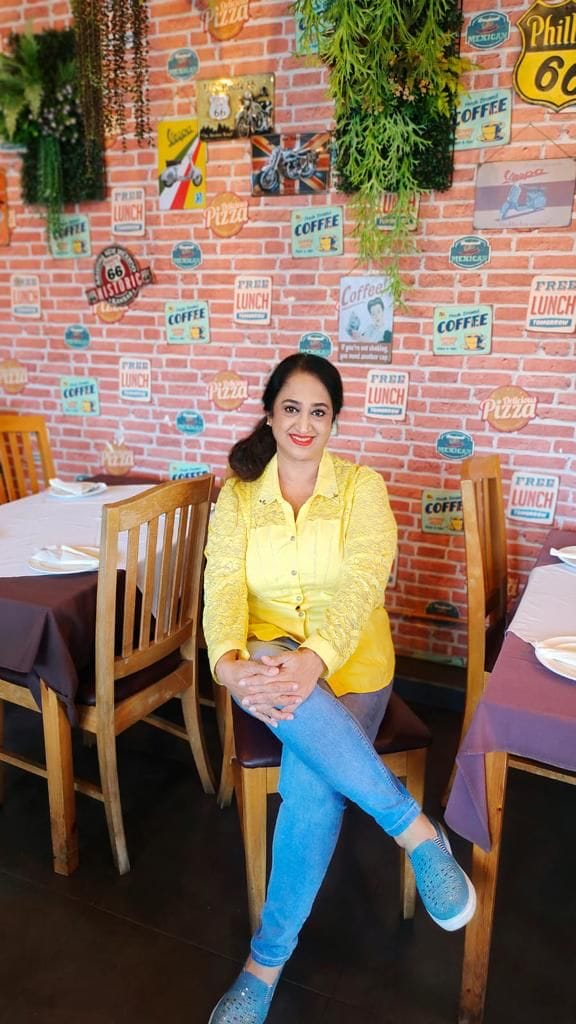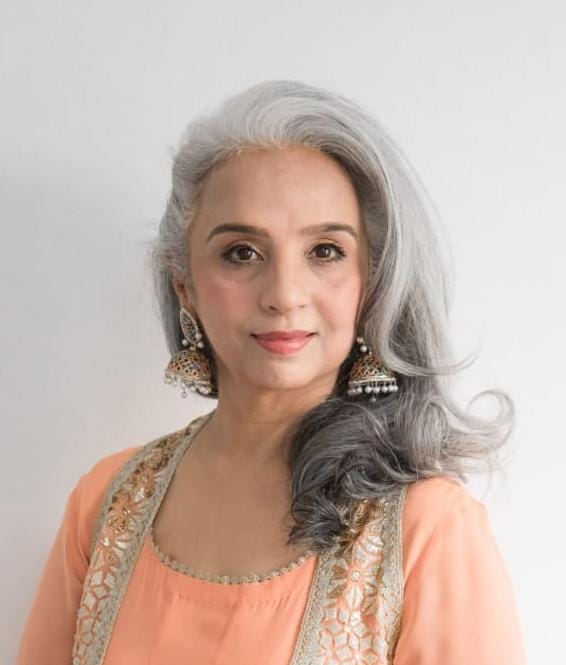How they keep everyone happy while stuck in the middle.
By Jasnam Sachathep
Indian women are powerhouses. The amount of expectations that are put on them is more than even Wonder Woman herself could probably handle. Often, they move from the comforts of their own home to a completely new place after marriage, and somehow manage to survive. I’ve heard some of a certain age refer to themselves as ‘limited edition’ because they say that their kind of generation doesn’t exist anymore. Besides being limited, they are also special as they are the ‘sandwich generation,’ which means that they are literally sandwiched between their parents/in-laws and their children, and for some, grandchildren. There is no escaping! Regardless of whether they live in joint families or not, responsibilities of care, love, and duty never cease to exist.
Being sandwiched doesn’t only mean literally living in a joint family but it also means having duties with the family outside of the house, and having to take care of in-laws, parents, children, grandchildren – it’s a constant balancing act that they have to keep up! Being the bridge for the gap in generational mindsets is no easy task either, so we should appreciate and applaud our super mums!
A few women in the community were asked to share their personal experiences of being part of the sandwich generation and what everyday life looks like for them, from where they live, to their daily routine, and the responsibilities they feel to the generation above and below them.
SONIYA GULATI, 42
I live with my husband and two children in a unit opposite my in-laws. It’s near yet far, offering the best of both worlds. There’s privacy, yet togetherness. The grandkids and grandparents aren’t far away from each other, and can just hop over at any time for a quick catch-up. So it’s a sweet setup!
It’s nothing extraordinary, but I find comfort in my mundane routines. They involve some form of workout, followed by copywriting work or research, and of course, driving the boys to and from school or activities – which, by the way, is the best way to get teens talking! And I try to squeeze in a meet up with other mums, especially my own mum, at some point in the week.
As a stay-at-home mum, I always joke that my office is the living room couch. So many interesting conversations happen on that couch, whether it’s with the children, parents or in-laws. The responsibility I feel I have, as being part of the ‘sandwich’ generation, is to listen to each and respond in a way that they understand. For example, when it comes to spirituality, with my in-laws and parents, the words ‘God,’ ‘surrender,’ and ‘sacrifice’ elicit such faith that their eyes well up with gratitude. Meanwhile, the same words will make my kids roll their eyes. This sounds oxymoronic, but they need logical explanations to the mysterious workings of the universe. So, I’ll often point them to nature. That’s where they see surrender, acceptance, and at times, sacrifice, which elicits faith in them. I would say knowing how to tweak the same tale to fit two different generations keeps life interesting.
There are definitely days that I feel depleted. Energy is scattered. But then I ground myself with a few centring breaths or a long lone walk in the park, and I’m ready to go again. Having just lost my dad recently, I’ve a newfound appreciation for all the time I get to spend with my loved ones. He was quite the people person, and I hope to honour his memory by loving instead of complaining of all who are in my life.
NITA GULATI, 50
I am a 50-year-older single mum and my three boys live with me. My eldest son, Syd, contributed 50 percent and bought our apartment together with me. Everything we own in this house belongs to us 50- 50, including the bills and payments. My second one, Ricky, does his part by giving us a monthly contribution. As for Sujaan, my youngest, he is currently working on a plan to chip in sooner rather than later so he can show some responsibility towards easing the financial burden of the household.
I’d like to call myself a matriarch! Because we have only one house help, I actively run and maintain my household chores, do the groceries, buy all the food, and occasionally cook and clean myself. My children lend a helping hand after work by walking our dog, cleaning the house, and other errands. We are like a team of independent adults who depend on each other to make sure our house is well kept, and I’m the captain of the team! We’re more like friends sharing a home.
As of now, I’m juggling and hustling between four jobs, dance choreography, being co- owner of Panache Events, freelancing as a social media manager and promoter, and as a Bollywood dance fitness trainer. I’m very grateful that all this came to me organically when I needed to generate income the most. My career aside, I give importance to things I’m passionate about: spending time in nature and doing adventure treks; yoga; penning poems, odes, and journaling; doodling; and I try to meditate and do pranayam everyday too. Walking my husky gives me a lot of peace, so I try to make time for that when I can.
When asked about being part of the sandwich generation, I don’t speak for myself alone, I speak for my entire generation; my friends, family, and acquaintances with whom I’ve had this conversation with on multiple occasions. We often feel a lot of weight is on us to bridge the gap between two extreme generations: the one that is orthodox and conservative, and endorses superiority; and the generation that is liberated, independent, and believes more in equality amongst gender, race and age.
Back in the day, our parents raised us to always put other people first, to not question rules imposed by elders, and to keep our opinions to ourselves. In today’s age, schools prepare children to be practical and to think for themselves, to voice their opinions freely, and be true to themselves. Hence, it has become my generation’s responsibility to bridge this communication gap! We have no choice but to bear the burden of trying to continuously make them understand where the other is coming from, without sabotaging our own relationship with both parties.
This can be cumbersome and exhausting, and yet we have no choice but to keep explaining, and making sure they’re cordial and happy. I personally feel that our parent’s generation is capable of change and evolution despite their old-school thoughts, as I’ve seen my parents accept things I couldn’t have imagined.
Having said this, I also feel that if we instil values of love and kindness in our children, they can be understanding and considerate towards the feelings of our elders, despite the lack of EQ in many children brought up in today’s world. The truth is, they won’t accept re-enforcement; we sent them to education establishments that trained them to be otherwise!
I truly believe we are indeed the hardest- working generation as we’ve had to sweat to support both the extreme generations of our parents and children. We understand everybody, Amen!
KAWALJIT ‘KIRAN’ LUTHRA, 67
I lived in a joint family. We got our own place when the kids started growing, and my father- in-law lived with us until he passed away. Our children got married, had kids, and eventually moved out. Everyone has their own space, and we enjoy our get-togethers on weekends.
A typical day for me starts with my morning routine. I’m an early riser so I start with my stretches. I walk to the fresh market most mornings, prepare breakfast, do my prakash (morning prayer) and then sit down for morning tea. I eagerly look forward to weekends, when I can meet everyone, especially my grandkids. We try to have at least one meal a week together as a whole family, or during birthdays. It’s always a joy seeing everyone and spending time together.
Now that they’re all growing up with different schedules, I love when my grandkids can make it for sleepovers. I enjoy having them over, playing board games, badminton, and learning new things with them. They look forward to what they call my ‘signature American breakfast,’ and aloo and paneer paratha brunches. When they were younger, they loved going on bike rides with my husband and now they get excited to get treats from him. Sometimes we take beach trips together. They all have different personalities, and it’s fun to spend time with them.
Raising kids now is different from our time. They were in boarding schools while we managed work, travel and family. Now kids are in international schools and they have to balance work, activities, and parents. On our part, there’s a lot of juggling that needs to be done as well, especially when you’re middle- aged. Change, whether positive or negative, can be overwhelming.
We do the best we can for our family. Some decisions we make turn out great, while some, not so much. We are all evolving. As I grow older, I recognise that we all have strengths and flaws as parents, and that circumstances impact everyone differently. The hope is that kids all learn and grow from the experiences and appreciate the good and wonderful things. A little empathy and communication go a long way, and I have faith and believe in the power of ardaas (making requests to God).
Time is precious. I savour every moment I spend with the people I love. These two quotes are framed in the house since my kids were young, and they shape my attitude as someone who’s part of the ‘sandwich generation’:
“Nothing is impossible,” and “By the time you realise your parents were right, you’ll have children who think you’re wrong.” [Laughs] Overall, I’m a positive person and my motto is to live, laugh, and let go. Make the most of each day and live life to the fullest. Zindagi na milegi dobara – you only live once!
ANJANA GHOGAR, 54
I live in a joint family with my in-laws and my son. I like to divide my day into three- hour brackets that include a balance of ‘me’ time, family time, household responsibilities, tutoring, and finally unwinding. Living together means that I plan my day in such a way that I divide it equally so that time spent with my in-laws and/or son is also my time.
When asked about being sandwiched, I feel like there are more perks and advantages than disadvantages in balancing two generations. From my personal experience, I have learned more compassion and patience. I’m able to pause and think before finalising any decisions, and I can put myself in the shoes of both my son, and my in-laws.
This kind of thought process is always done out loud, so my son has always grown up seeing this 360-degree decision-making approach. I feel that children mature very differently in a joint family than in a nuclear family setting. An example of how this has affected my son is one time when he was six, and my husband forgot to turn on the TV at home for his parents – he always does this before we go out anywhere. When we called home to teach them virtually how to do it themselves, we learnt that my son had already done it for them. He was never taught, but just by having seen it done for them on a regular basis, he had it figured out.
When living together, resources are also shared. Therefore, plans materialise differently and everyone shares and asks the others, instead of thinking of just ‘me.’ So I do feel that there are a lot of in-built advantages – it’s hard but also fun at the end. I don’t feel suffocated at all, thanks to the in-laws also, who have given me space. I never have to worry about going anywhere as I have confidence that the grandparents can take care of the kids, and vice versa!










